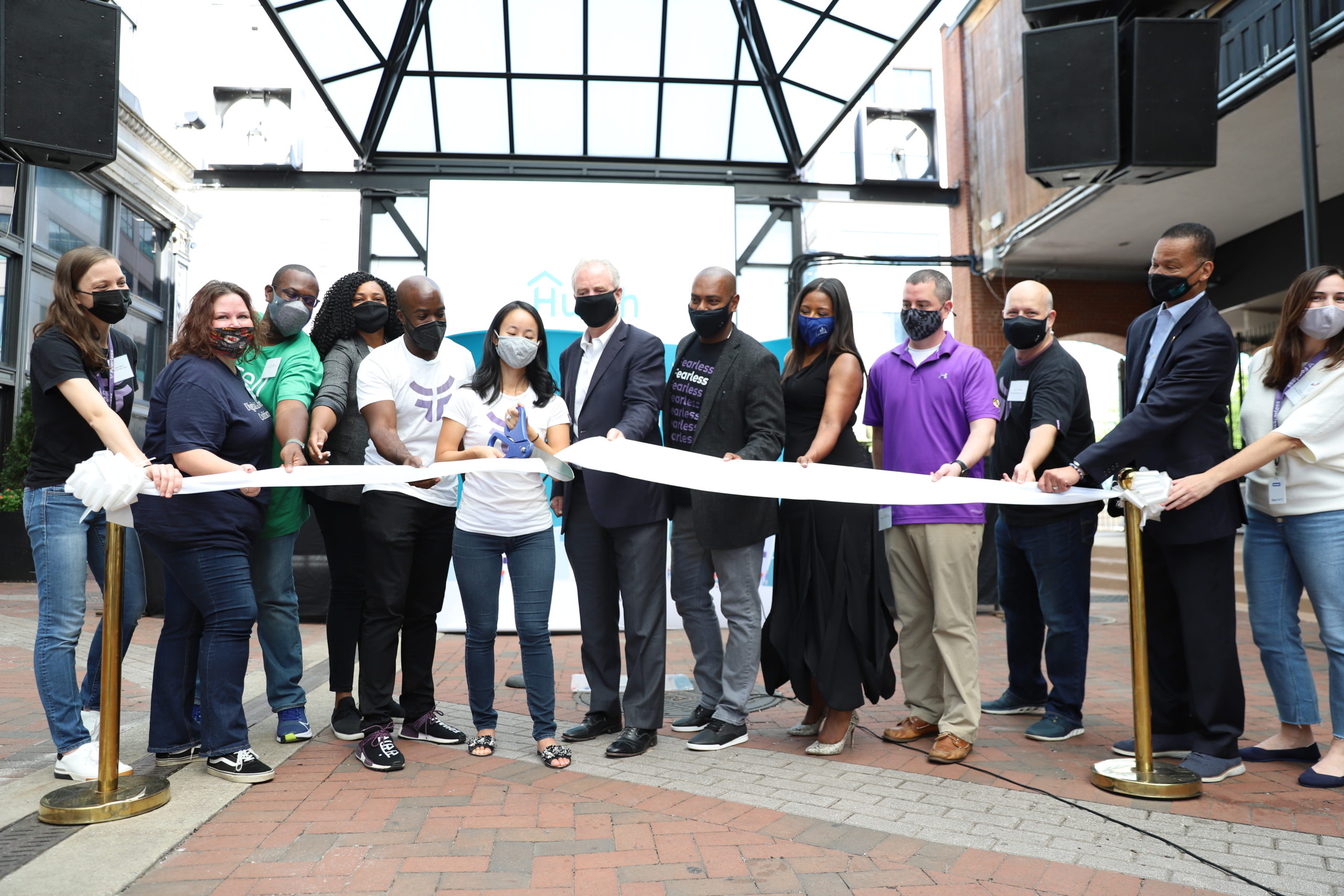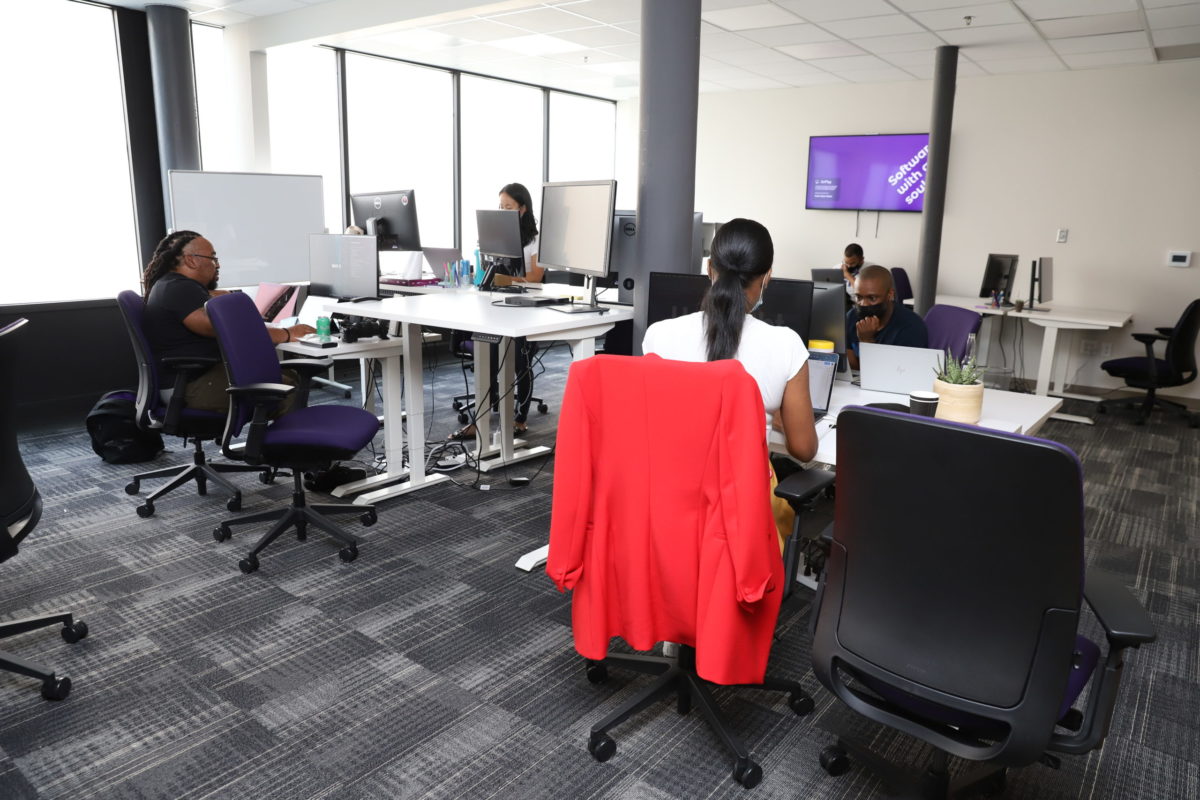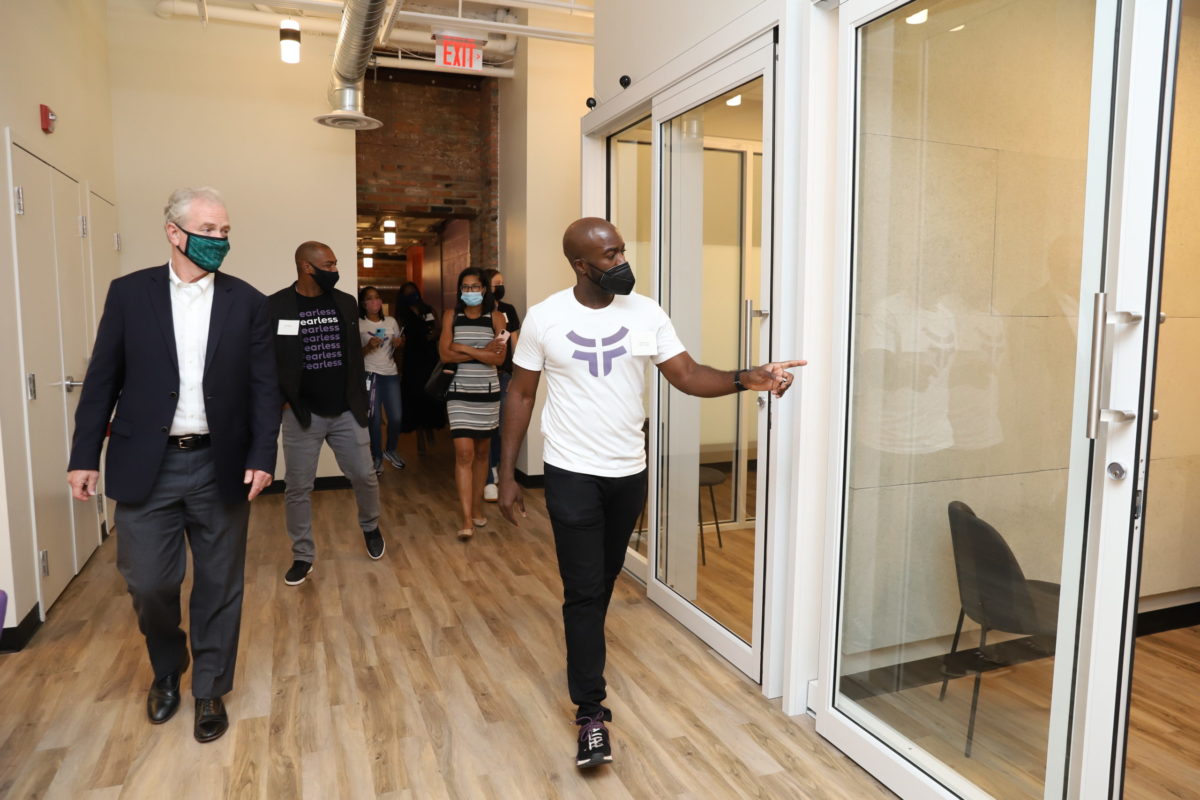Building a business from start to success doesn’t happen overnight. Felix Gilbert learned this with XCell.
He originally started the digital and design agency in 2011, before facing a “desert season” that led him to confront the reality it wasn’t working. But four years later, he joined downtown software agency Fearless, and CEO Delali Dzirasa encouraged his passion for entrepreneurship.
By 2019, Gilbert was a member of Hutch, a two-year incubator program launched by Fearless that year to support civic tech companies that are working in the area of digital services for the federal government.
“When I launched XCell earlier this year, I made sure we didn’t have that 2011 season,” Gilbert said Tuesday.
Now, entrepreneurs like Gilbert will have a home for their business. Hutch opened dedicated coworking and meeting space on the first level of Spark Baltimore in downtown Baltimore this week. It is aiming to build 25 women and Black-owned businesses by 2025, and the physical address is a key part of the equation, leaders said.
“This isn’t just about space,” Fearless CEO Delali Dzirasa said at an opening event attended by officials from the city government, federal government and digital services space. “It’s about the entrepreneurs and founders supporting one another day in and day out. … It’s something about being in a space with one another, seeing someone else in it thriving.”
“That keeps you excited,” he said, “and then you realize that excellence is what’s expected of everyone in the space.”

The space is a mark of progression for the incubator. Since launching in 2019, it has graduated five companies and currently has nine companies in its programming, which includes regular sessions and mentorship from Fearless leaders and a network of partners. Applications are open through Sept. 30 for the next cohort, as well. Over the last year, Fearless brought on Baltimore ecosystem leader Stephanie Chin to lead Hutch, and named an advisory board.
It’s also growing to meet opportunity. Unlike startup-supporting programs that focus on a software product, the incubator has a distinct focus on supporting companies looking to provide services to the government. Rather than outside investment, these typically grow on revenue alone. Dzirasa pointed out that the federal government contracting space is a $100 billion marketplace.
Fearless now counts 140 employees in two cities, including a recently expanded HQ of its own above the Hutch space within Spark. With its own growth over 12 years and a move into Baltimore city when Spark opened in 2016, Fearless wanted to spur a community of others nearby. It started Hutch to support other businesses and create a diverse ecosystem of federally focused companies in Baltimore — a city with plenty of federal presence of its own, as well as proximity to DC.
“I think it’s a great testament to your commitment to Baltimore City that you said, it’s not enough for Fearless to be successful,” said U.S. Sen. Chris Van Hollen (D-Maryland), addressing Fearless. “We want to open the doors of opportunity to others so we can have more companies like Fearless, more innovation and make sure we open those doors of opportunity to women owned and minority-owned small businesses.”

Bringing more diversity into the federal space can also improve the products. Van Hollen pointed out that helping the federal government to innovate on digital communications and services to the public will only help the country. Hutch’s focus on diversity, too, can bring new voices to the federal government contracting space.
“Having people that understand problems and understand how to relate to them and understand what the users are [experiencing] is really important, and we can’t do that with having the same companies from the same beltway area involved with the same contracts,” said Traci Walker, executive director of the Digital Services Coalition and a Hutch advisory board member.
Going forward, Hutch is eyeing growth beyond Baltimore as it seeks to build companies. It is already bringing together like-minded entrepreneurs and offering resources to grow. With the local HQ, it now has a tangible home.
“When I look at us, I’m like, yeah, that’s a community,” Gilbert said.







